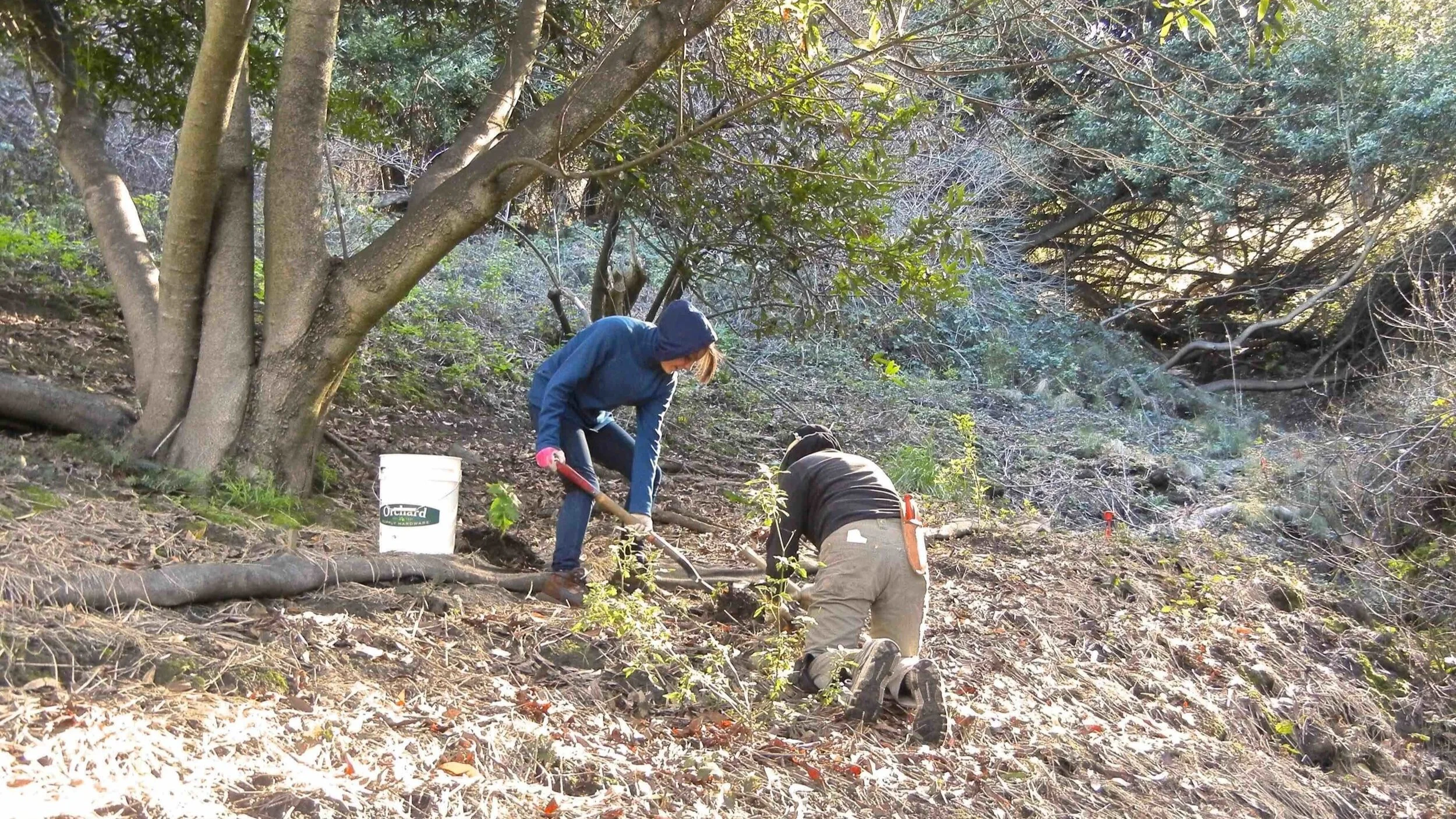The project is comprised of fire fuel mitigation work along upper Claremont Ave. on lands owned University of California, Berkeley (UCB). Project activities will take place within UCB Property 100 feet of the edge of pavement along Claremont Ave. The location of work is indicated on the map below, labelled as EST-3. Total project area is approximately 18 acres.
Fuel management proposal for UC Hill Campus by Joe R. McBride
The purpose of this paper is to present a fuel management plan for University of California property located in Strawberry and Claremont canyons. The plan will identify site-specific fuel reduction treatments to reduce the fire hazard present in naturally occurring vegetation types and to convert highly hazardous plantations of eucalyptus and conifer species to less hazardous naturally occurring vegetation types.
Click here for Professor McBride’s full proposal.
Comments regarding the NOP and IS from Stuart Flashman and Michael Graf
These comment are submitted by myself and Mr. Michael Graf, Esq. on behalf of the Claremont Canyon Conservancy (“Conservancy”), a 501(c)(3) nonprofit membership organization, in response to the University of California Regents’ Notice of Preparation (“NOP”) and Initial Study (“IS”) for the above-referenced plan. We appreciate the opportunity to submit these comments, which enlarge upon comments made by the two of us at the public scoping meeting held on December 2, 2019.
Comments submitted by Jerry Kent regarding UC's NOP and Initial Study
The Conservancy has been a strong supporter of the University’s efforts to mitigate fire hazards on the Hill Campus since the 1991 fire—including the significant fire hazard reduction improvements that were achieved between 2000 and 2007 in Claremont Canyon, at Chaparral Hill, and along the Grizzly Peak Boulevard Ridgetop Fuel break between Grizzly Peak and Chaparral Hill. We believe UC was able to accomplish important fire mitigation work at these project areas with limited funds, limited staffing, and without opposition by the public.
Conservancy submits comments regarding UC's Vegetative Fuel Management Initial Study, by Jon Kaufman
We were pleased to learn that the Initial Study is not the complete plan that UC intends to make the subject of the Environmental Impact Report. As was noted at the scoping meeting, the Initial Study is too vague and non-specific. As UC and its consultant develop the full plan, we urge that the following points be given careful consideration.
UC Professor Emeritus Joe McBride's comments regarding UC's Vegetative Fuel Management Initial Study
On November 20, 2019, UC Berkeley issued a Notice of Preparation (NOP) of an Environmental Impact Report (EIR) for its Hill Campus Wildland Fuel Management Plan. The following response by UC Professor Emeritus Joe McBride was submitted to the planners, along with oral comments given at a December 2 scoping meeting:
Response to UC Berkeley Hill Campus Management Plan – Joe McBride – Nov. 25, 2019
… Vegetation management treatments are proposed (e.g., defensible space; shaded fuel breaks; roadside fuel breaks) without providing the details of these treatments. It is suggested that ‘five types of vegetation treatment activities are proposed for implementation, but no specific details are given as to how decisions will be made in the three vegetation treatment types to select one or more of the vegetation treatment activities. More specificity is needed to access the environmental impacts and the potential effectiveness of the vegetation treatment activities.
FEMA update on grant to UC
Directly across the road from Signpost 29 (center of photo) are the remaining eucalyptus slated for removal on UC land in Claremont Canyon. UC is currently negotiating with FEMA to get funds returned so their wildfire safety program can move forward. Trees seen along the ridgeline (top of photo) are on EBMUD property. These are being thinned over time as an alternative to complete removal. (Note: As of December 2019, grant funds to UC were withdrawn by FEMA. Similarly-sized grant funds were subsequently provided to UC by CalFire.


